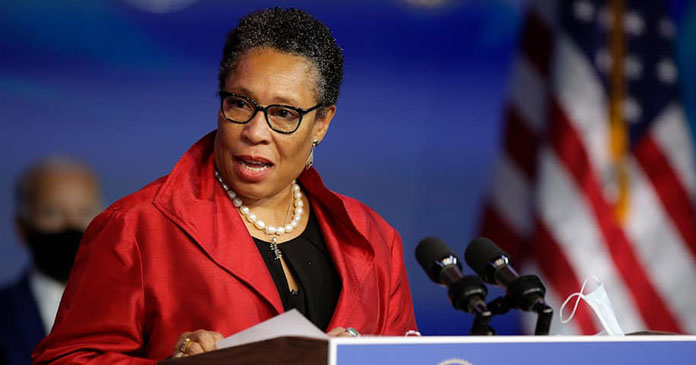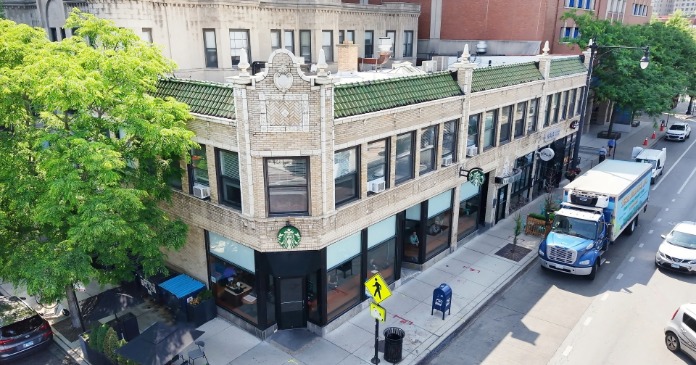
If confirmed as secretary of housing and urban development, Rep. Marcia L. Fudge (D-Ohio) will confront the immediate challenge of keeping millions of Americans from losing their homes amid the coronavirus pandemic, while also ending discriminatory housing policies as part of President Biden’s push to dismantle systemic racism.
Fudge, 68, appeared remotely before the Senate Committee on Banking, Housing and Urban Affairs for her confirmation hearing Thursday, from her home in Warrensville Heights, Ohio, with her 87-year-old mother by her side.
Fudge, the former chairwoman of the Congressional Black Caucus who previously served as Warrensville Heights’ first African American and first female mayor, plans to focus her tenure on bolstering fair housing protections, expanding access to affordable housing and, most urgently, providing rental assistance to households at risk of eviction, according to her written testimony.
“My first priority as secretary would be to alleviate that crisis and get people the support they need to come back from the edge,” Fudge plans to tell committee members.
Tens of millions of Americans are behind on rent, according to Fudge, and almost 3 million homeowners are in forbearance; another 800,000 borrowers are delinquent. Fudge said the $25 billion that Congress has provided in rental assistance and the government’s extension of the eviction moratorium are not enough. Latinos and Black Americans are more likely than White people to have reported job losses during the recession induced by the coronavirus pandemic, and people struggling to pay rent continue to be served with eviction notices despite moratoriums.
Fudge also expects to make homeownership—and the wealth creation that comes along with it—a reality for more Americans. Only 46 percent of Black families owned homes compared with 75 percent of White families in 2020, a gap that has widened since 1976, according to Pew Research Center.
Doing so, her testimony said, “will require us to end discriminatory practices in the housing market, and ensure that our fair housing rules are doing what they are supposed to do: opening the door for families, especially families of color who have been systematically kept out in the cold across generations, to buy homes and punch their ticket to the middle class.”
Fudge, as HUD secretary, is expected to reinstate a 2013 rule aimed at barring the housing industry from enacting policies that, while seemingly race-neutral, have an adverse effect on Black and Latino Americans. The rule had codified a decades-old legal standard known as “disparate impact,” but the Trump administration issued a new rule in September that housing advocates said would make it harder to prove such forms of bias.
Housing advocates say they expect Fudge to do much more than simply reverse the Trump administration’s evisceration of President Barack Obama’s fair housing policies.
Julián Castro, the housing secretary under Obama who recently helped prepare the “New Deal for Housing Justice,” a playbook for federal policy change focused around racial equity, said in an interview that the new administration should invest in re-building the agency’s fair housing staff and funding local housing and civil rights nonprofits so reports of housing discrimination can be investigated and fair housing laws better enforced.
Black homeownership and net wealth were decimated during the Great Recession of 2007-2009, in part due to predatory lending practices, and have yet to recover.
“If we can create greater homeownership for everybody, but particularly for people of color that have lagged behind, then we can close that wealth gap,” Castro said. “I’m confident that it is more realistic today than it was 10 years ago to get big things done on housing, because more people are feeling the pinch right now.”
Other recommendations for the first 200 days of the Biden administration include reinstating protections for transgender homeless people, cementing the right of families of mixed immigration status to access federally subsidized housing, expanding access to housing vouchers, carefully considering the treatment of people with criminal records who seek federal housing assistance, creating a refundable renter’s tax credit, and establishing a presidential commission on reparations to Black Americans for the legacy of discriminatory federal housing policy.












